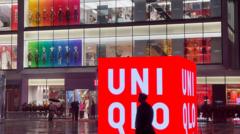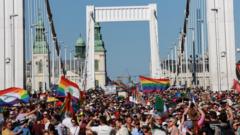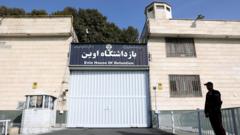Fast Retailing's CEO Tadashi Yanai has publicly clarified that Uniqlo avoids using Xinjiang cotton, reflecting on the rising pressures from both the U.S. and China while navigating the complexities of modern retail.
Uniqlo's CEO Asserts No Use of Xinjiang Cotton Amid Ongoing Controversy

Uniqlo's CEO Asserts No Use of Xinjiang Cotton Amid Ongoing Controversy
Amidst global scrutiny over labor practices, Uniqlo's chief executive confirms the company does not source cotton from China's Xinjiang region.
The CEO of Uniqlo, Tadashi Yanai, has recently told the BBC that the company does not utilize cotton sourced from the Xinjiang region of China, marking a significant stance in the heated global conversation regarding labor practices in China's textile industry. Yanai's assertion comes as part of a broader effort for the brand to enhance transparency about the origins and production processes of its materials.
Previously, Uniqlo had refrained from commenting on its use of Xinjiang cotton, opting to remain politically neutral to maintain its expansive footprint in the Chinese market, which hosts around 1,000 Uniqlo stores and serves as a vital manufacturing hub for the brand. Despite being one of the most sought-after cotton sources, Xinjiang cotton has faced severe backlash due to allegations surrounding forced labor of Uyghur Muslims in the region.
In light of strict U.S. regulations imposed in 2022 prohibiting imports from Xinjiang, several global brands like H&M and Nike withdrew products made with Xinjiang cotton, suffering significant repercussions in China where they faced boycotts. Yanai, Japan's wealthiest individual, had previously chosen not to disclose Uniqlo's cotton sourcing practices to sidestep controversy and keep the store’s popularity intact in the lucrative Chinese retail environment.
Yanai's recent comments highlight the ongoing pressure on large corporations to take definitive stances amid geopolitical tensions between the U.S. and China. Isaac Stone Fish, a business strategist, noted that “Not a single large company can remain politically neutral anymore,” emphasizing the necessity for brands to choose sides in the current climate.
Despite expanding in Europe and the U.S., Yanai retains a focused strategy on the Asian market, declaring his intent to increase the number of Uniqlo stores in China to 3,000. China serves as Uniqlo's primary manufacturing hub, although the brand also operates production facilities in countries like Vietnam and India.
Faced with rising competition from ultra-fast fashion brands, Yanai critiques the fast fashion business model that prioritizes fleeting trends over sustainability. He asserts that Uniqlo focuses on creating essentials that can withstand the test of time. Over the past four decades, under Yanai’s leadership, Uniqlo has evolved from a modest business into a global fashion chain boasting revenues of 3 trillion yen in 2023.
As Yanai sets ambitious goals to surpass Inditex, owner of Zara, as the largest fashion retailer globally before retirement, challenges may arise with the potential return of Donald Trump to the presidency and promises of increased tariffs on Chinese imports. Forces surrounding human rights and labor issues are likely to influence consumer behavior, shaping the direction and strategies of major retailers such as Uniqlo in the coming years.




















